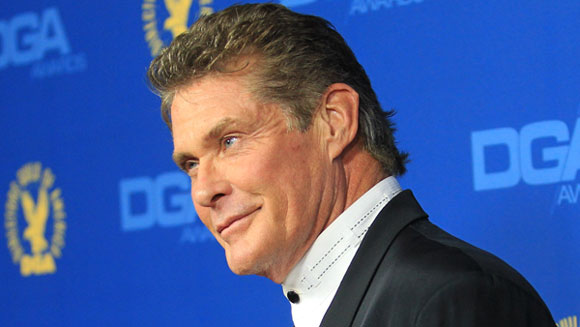


Roscoe “Fatty” Arbuckle (USA, 1887-1933) was one of the most popular silent-film stars of the 1910s.
In addition to being hit by the first custard pie thrown on film – tossed at him by Mabel Normand in A Noise from the Deep (1913) – the pioneering comedy actor was the first to direct his own films, and he mentored notable names such as Charlie Chaplin, Bob Hope, and Buster Keaton.
He was also one of the world’s highest-paid performers, renewing his contract with Paramount Pictures in 1921 for $1,000,000 a year (equivalent to $17.7 million in 2023).
However, at the height of his fame, Arbuckle became the world’s first film star to be banned, following his involvement in one of the biggest scandals to ever hit Hollywood.

In September 1921, Arbuckle was accused of sexually assaulting and accidentally killing actress Virginia Rappe at a party in a San Francisco hotel.
Witnesses recounted contradictory versions of what happened to Rappe, who seemingly suffered a severe injury at the party before dying four days later from a ruptured bladder.
After three highly publicized trials between November 1921 and April 2022, with the first two resulting in hung juries, Arbuckle was acquitted of manslaughter.
Despite the court’s verdict, Arbuckle’s reputation was in ruins.
Six days after his acquittal, he was banned from featuring in films ever again by Will H. Hays, head of the MPPDA censor board, who denounced Arbuckle as an emblem of Hollywood’s rampant debauchery. All showings of Arbuckle’s previous films were stopped too.
Hays was given the green light to ‘cancel’ Arbuckle by Adolph Zukor, a co-founder of Paramount Pictures.
In the aftermath of the trial, Zukor faced outrage from various groups who decried Hollywood’s negative influence on society, so he sacrificed Arbuckle to protect the film industry.
Although Hays eventually succumbed to public pressure and lifted the ban before the end of the year, most exhibitors continued to boycott Arbuckle’s films, and the disgraced actor found little work throughout the rest of the decade.

Arbuckle, who accrued a debt of over $700,000 (equivalent to $12.8 million in 2023) due to legal fees, was supported financially by Buster Keaton, who offered Arbuckle 35% of all future profits from his production company as thanks for giving him his break in the industry.
Arbuckle went on to work under the pseudonym ‘William Goodrich’ for several years, directing a number of comedy shorts featuring lesser-known actors.
In 1932, he made a brief comeback under his own name when he appeared in six Warner Bros. comedy shorts, which proved to be hugely popular in America and prompted Warner Bros. to offer Arbuckle a contract for a feature-length film.
However, on 29 June 1933 - reportedly the same night that he signed the contract - Arbuckle, aged 46, suddenly died from a heart attack while asleep, after spending the evening celebrating with friends.
Although many of Arbuckle’s films are lost forever due to being poorly preserved or destroyed by studios, his influence on early cinema was posthumously recognized in 1960 with a star on the Hollywood Walk of Fame.
Want more? Follow us on Google News and across our social media channels to stay up-to-date with all things Guinness World Records! You can find us on Facebook, Twitter/X, Instagram, Threads, TikTok, LinkedIn, and Snapchat Discover.
Don't forget to check out our videos on YouTube and become part of our group chat by following the Guinness World Records WhatsApp channel.
Still not had enough? Click here to buy our latest book, filled to the brim with stories about our amazing record breakers.